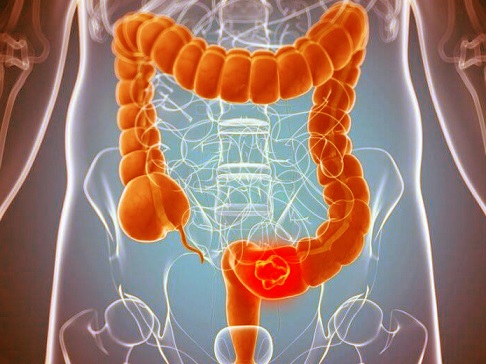Alarming Rise in Early-Onset Colorectal Cancer Mortality Among Young Adults Aged 20 to 44!
Nikhil Prasad Fact checked by:Thailand Medical News Team Nov 18, 2024 4 months, 3 weeks, 4 days, 6 hours, 29 minutes ago
Medical News: A startling trend has emerged in the United States over the past two decades: the mortality rate for early-onset colorectal cancer (EO-CRC) has significantly increased, particularly among individuals aged 20-44. This worrying discovery stems from a detailed analysis of two major U.S. databases: the National Center for Health Statistics (NCHS) and the Surveillance, Epidemiology, and End Results (SEER) database.
 Alarming Rise in Early-Onset Colorectal Cancer Mortality Among Young Adults Aged 20 to 44!
Alarming Rise in Early-Onset Colorectal Cancer Mortality Among Young Adults Aged 20 to 44!
The findings, presented by Dr. Yazan Abboud and colleagues at Rutgers New Jersey Medical School during the American College of Gastroenterology (ACG) 2024 Annual Scientific Meeting, reveal an alarming rise in deaths linked to EO-CRC in younger adults, despite declining rates of colorectal cancer in older populations. This
Medical News report highlights the urgent need for enhanced awareness, earlier screening, and tailored interventions to address this pressing public health issue.
The Growing Crisis in Younger Adults
EO-CRC, defined as colorectal cancer diagnosed in individuals under 50, has seen an undeniable surge in cases and mortality rates in recent years. Between 2000 and 2022, the study found that deaths from EO-CRC have increased across all age groups studied (20-54 years), with the sharpest rise occurring among the youngest cohort (20-44 years).
The researchers observed that while mortality rates decreased for all ages between 2000 and 2005 (annual percentage change or APC = -1.56), they climbed steadily from 2005 to 2022 (APC = 0.87). Among individuals aged 20-44, mortality increased throughout the entire 22-year study period (APC = 0.93). This younger cohort exhibited the greatest overall rise in mortality compared to those aged 45-54.
Insights from NCHS and SEER Data
Dr. Abboud’s team analyzed data from the NCHS, which represents nearly the entire U.S. population, and the SEER database, covering approximately 42%. By examining deaths linked to EO-CRC, the study revealed critical insights into how the disease progresses at different stages.
-NCHS Data:
A total of 147,026 EO-CRC-related deaths were recorded, of which 39,746 (27%) were in individuals aged 20-44. Mortality rates decreased initially from 2000-2005 but rose consistently afterward.
-SEER Data:
The SEER database provided a closer look at stage-specific mortality. Among early-stage tumors, mortality rates rose markedly for patients aged 45-54 (average APC = 11.52), though data were insufficient for younger individuals. For late-stage tumors, mortality increased across both age groups: 45-54 (average APC = 9.58) and 20-44 (average APC = 11.06).
These findings underscore that mortality has risen across tumor stages, highlighting the aggressive nature of EO-CRC in younger populations.
Why Are Younger Adults at Greater Risk?
r />
Experts speculate that the increasing mortality in younger adults could be linked to delayed diagnoses, as symptoms may often be overlooked or dismissed. Younger patients might not associate symptoms such as gastrointestinal bleeding, anemia, or changes in bowel habits with cancer, leading to late-stage detection.
Dr. David Johnson, professor of medicine and chief of gastroenterology at Eastern Virginia School of Medicine, commented on the study, suggesting that delayed diagnostic testing might be a significant factor. He also raised the possibility of biological differences in the cancer affecting younger patients.
"Alarm features like overt bleeding and iron deficiency anemia require immediate attention and focused evaluation, especially in younger individuals," said Dr. Johnson.
Screening Recommendations and Future Directions
The rising prevalence of EO-CRC has already prompted U.S. medical societies to lower the recommended screening age for colorectal cancer to 45. This move, implemented by the U.S. Preventive Services Task Force in 2021, aims to improve early detection. However, given the alarming trends in the younger population, more needs to be done to identify at-risk individuals and tailor preventive measures accordingly.
Dr. Abboud emphasized the need for further research, particularly into the role of neoadjuvant chemotherapy for younger patients with early-stage EO-CRC. “Such investigations could potentially improve outcomes and guide treatment protocols for these vulnerable patients,” he stated.
Key Takeaways for Patients
Understanding the risk factors and early signs of colorectal cancer is critical. Mortality rates for individuals aged 20-54, especially those under 45, have been climbing steadily for two decades. Participating in routine screenings and paying close attention to warning signs, such as persistent changes in bowel habits, unexplained weight loss, or rectal bleeding, could save lives.
Additionally, increased awareness among healthcare providers is essential to ensure timely diagnosis and treatment in younger patients who might otherwise be overlooked.
Conclusion
This study sheds light on an unsettling trend: rising deaths from EO-CRC in young adults despite advances in cancer detection and treatment. The findings highlight the urgent need for increased advocacy around screening, earlier detection strategies, and better awareness among both patients and physicians.
Moving forward, a comprehensive approach - including more robust research into EO-CRC biology, wider access to screening, and greater public education - is needed to reverse this deadly trend. Young adults must not dismiss symptoms, and healthcare systems must prioritize swift evaluation of risk factors and warning signs.
The study findings were published as an abstract.
https://gi.org/media/press-info-scientific-meeting/featured-science/p3865-rising-mortality-of-early-onset-colorectal-cancer-particularly-in-patients-younger-than-45-years-insights-from-the-largest-mortality-databases-in-the-us-over-two-decades/
For the latest on Colorectal Cancer, keep on logging to Thailand Medical News.
Read Also:
https://www.thailandmedical.news/news/japanese-doctors-find-that-gamma-glutamyltransferase-levels-can-be-used-as-biomarkers-for-colorectal-cancer-risk
https://www.thailandmedical.news/news/microplastics-linked-to-colorectal-cancer-and-inflammatory-bowel-disease
https://www.thailandmedical.news/news/how-a-tiny-molecule-could-change-outcomes-in-colorectal-cancer
https://www.thailandmedical.news/news/canadian-study-finds-that-ursolic-acid-could-be-used-as-an-adjuvant-to-combat-colorectal-cancer
https://www.thailandmedical.news/news/non-invasive-home-based-screening-reduces-risk-of-colorectal-cancer-death-by-33-percent
